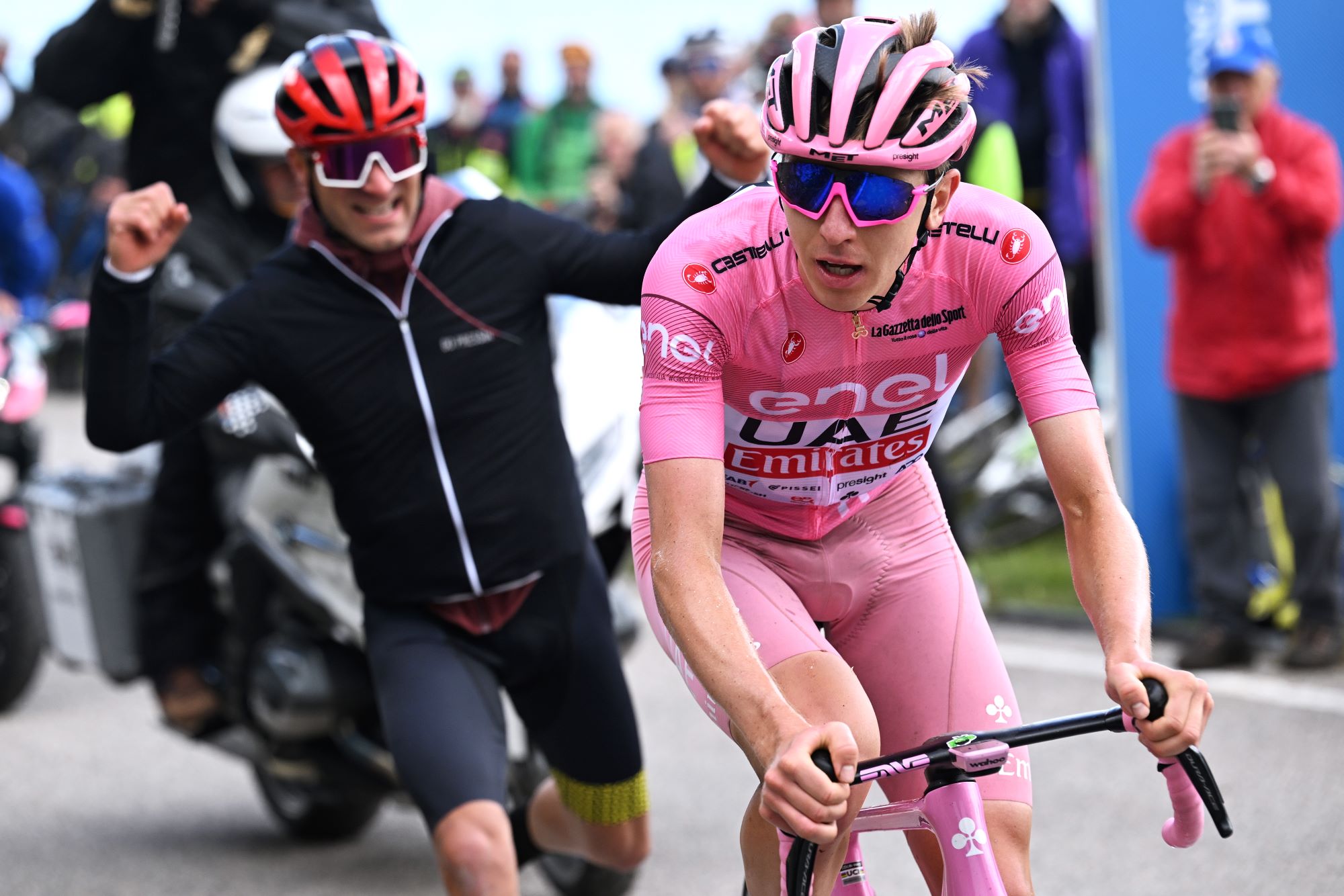
The general classification contenders at the Giro d’Italia this year had a very everyday-cycling problem to deal with. That’s the irritating existence of someone who’s much, much faster than them.
Most of us, on any random group ride, or even if we’re just tooling round a local park before work, will have had to find a dignified way to deal with un-ignorable excellence-in-others. It was fun watching Geraint Thomas and the others having to do the same thing every time Tadej Pogačar headed off up the road.
I am well placed to offer advice on this subject having, over the years, met a lot of riders faster than me. I like to feel I have met these impostors with the sort of quiet, restrained response that saves the five minutes of swearing and the attempt to throw a bike through a hedge until they are at least out of sight. This delay is not normally long, but it feels it at the time.
The most perilous part of the experience is when such a rider goes to the front of the group and either attacks or just gradually opens the taps. Do you attempt to go with them? In the thrill of the moment, you will be convinced that the speed they are going at exists in that narrow margin between what you know you can do, and what you secretly hope you might be able to do if pushed a bit.
Trust me, it does not. Ben O’Connor tried going with Pogačar at the Giro on this basis, and it ended for him the way it would end for all of us. The loud cursing that emanated from the Decathlon AG2R team bus a few seconds after O’Connor boarded it post-stage lacked only a bike crashing out of a window for full marks.
If you have the wisdom to just let them go, you at least look as if you’re in control. After Pogačar rode away on stage 15, Geraint Thomas said that the rest of the group had just left him to get on with his thing. That at least had style. Doing this in a race means you have to accept defeat. But in a group ride, it really doesn’t. If you let someone ride off up a hill, at the top they have to choose between riding the rest of the outing on their own, or waiting for you. If they keep going, they’re the dictionary definition of a sociopath. And if they stop and obediently wait, they’re the dictionary definition of a little baby sheep.
How you deal with it afterwards is easier. If you’ve been given a thrashing, you tell anyone who’ll listen how much you enjoyed it, how great the other rider was, how humbled you are to have been their victim, and how much you’re looking forward to many such thrashings to come. “One day I will tell my grandchildren how much better than me they were, and my grandchildren too will be super-excited to celebrate my inadequacy and their glory.” You literally cannot lay it on too thick.
What you can do later is plot how you’ll beat them next time. You can train harder, and smarter. You can hire a better coach. You can wargame your tactics, you can sign stronger team members the better to leave them isolated, and you can indulge in some subtle psychological warfare.
You can invest in better technology, more aerodynamic clothing, faster- rolling tyres. You can arrive at the next rendezvous a better, faster example of cyclist-hood.
You just want to hope they haven’t had any of the same ideas. But since they had the dedication and focus and knowledge to be so much better than you last time, the chances are they have. In which case you just have to hope that Jonas Vingegaard flattens him at the Tour.







